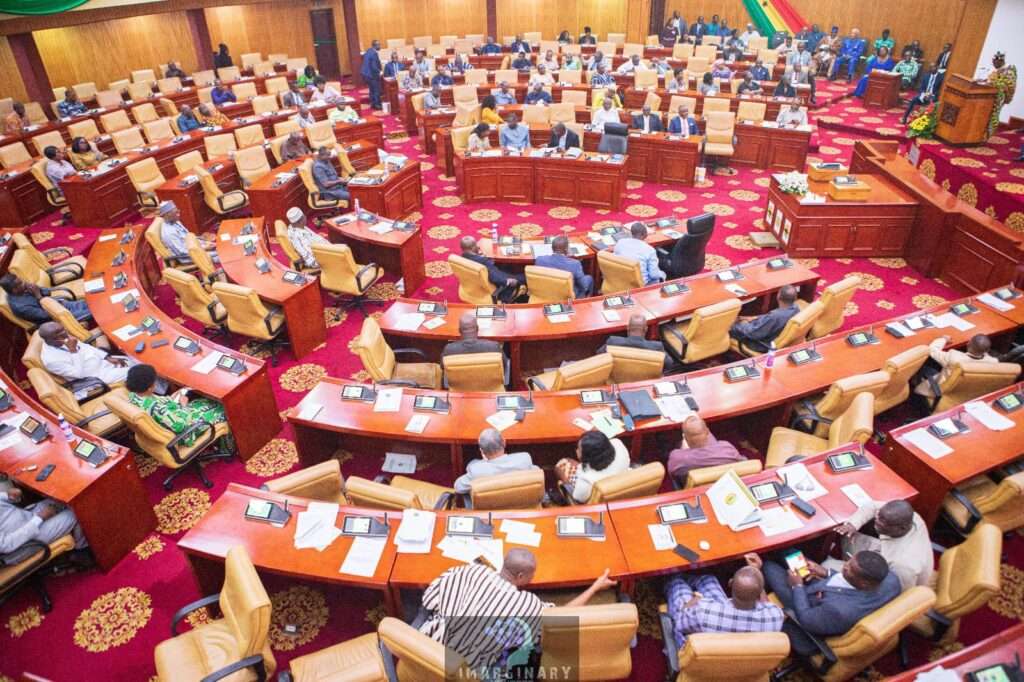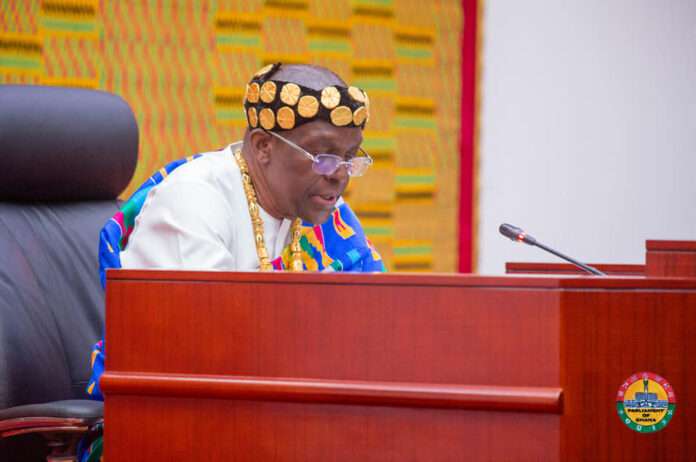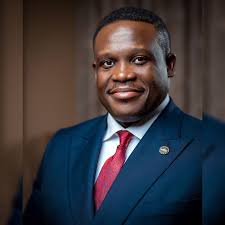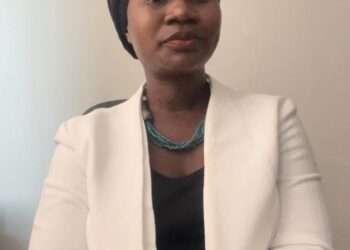Speaker of Parliament, Alban Sumana Kingsford, Bagbin has declared that the current hung parliament presents a unique opportunity to fortify Ghana’s parliamentary democracy, harnessing the diverse perspectives and collective strengths of the legislature to drive meaningful progress and reform.
This statement comes at a crucial juncture, as the 8th Parliament faces unprecedented scrutiny, being the first in Ghana’s history to be evenly split, resulting in repeated political stalemates and deadlock on critical national matters.
This unprecedented situation puts Ghana’s democratic resilience to the test, challenging its leaders to put aside partisan differences, engage in constructive dialogue, and find common ground in the pursuit of national progress and the betterment of the citizenry.
Delivering the keynote address at the inaugural Democracy Cup, a milestone event celebrating three decades of unbroken parliamentary democracy in Ghana, Speaker Alban Bagbin underscored the silver lining of a hung parliament.
He emphasized its potential to foster consensus-building, collaborative governance, and a more representative democracy.
“We are lucky that God blessed us with a hung parliament and I will encourage you to let us go that way for some time“. – Alban Sumana Kingsford Bagbin
Speaker Bagbin contended that a hung parliament encourages more nuanced and reflective deliberations, where diverse perspectives are considered and consensus is forged through thoughtful negotiation, rather than mere majority muscle, which can often lead to hastily considered and potentially detrimental decisions.
“Why? Because that allows you to sit to reason, not to act like a mob because of the majority numbers. There is usually no time to sit and think but just rush so even when you win the debate, you lose the vote. So indeed, there is a lot to be grateful to the Lord Almighty for”.
Alban Sumana Kingsford Bagbin
As such, Speaker Bagbin observed that the hung parliament has had a salutary effect on the economy, as the necessity for cross-party collaboration and consensus-building has led to more prudent and thoughtful decision-making, resulting in more effective and sustainable economic policies and outcomes.
Bagbin Adapts to Ghana’s New Parliamentary Reality
Characterizing the hung parliament as a paradigm shift or “a completely new game,” Speaker Alban Sumana Kingsford Bagbin acknowledged that traditional methods may no longer be effective in this unprecedented landscape.

He underscored the need for parliamentary processes to evolve through innovative and flexible strategies, tailoring governance to the unique dynamics of Ghana’s hung parliament and ensuring a more efficient, effective, and responsive government that addresses the nation’s needs.
“We have now re-positioned ourselves to be able to handle it better. We were applying rules that were for a majoritarian system. Definitely, you have to vote and the majority will carry the day. Now, you are running a parliament where there is no majority so you can’t apply those rules again”.
Alban Sumana Kingsford Bagbin
Speaker Bagbin also emphasized his pivotal position in Ghana’s political landscape, assertively stating that any attempt to sideline him would be utterly unacceptable.
He noted that he remains a stalwart guardian of legislative independence and a champion of democratic checks and balances, ensuring parliament’s authority is not diminished to a mere appendage of the executive branch.
Drawing on his vast experience working alongside every president in Ghana’s fourth republic, he declared that no individual or entity would be able to marginalize the Office of the Speaker or undermine the integrity of Ghana’s parliament as long as “I am alive”.
Moreover, he highlighted that prior to his speakership, parliament was frequently regarded as merely an appendage of the public service, a misconception he is resolute on dispelling, as he strives to elevate the legislature’s stature and assert its autonomy, ensuring it is recognized as a coequal branch of government.
He vowed to uphold parliament’s mandate as the supreme representative of the Ghanaian people, amplifying their collective voice and ensuring that the legislature remains a bulwark of democracy, accountable to the citizens who elected it, rather than merely serving as a rubber stamp for the executive branch.




















